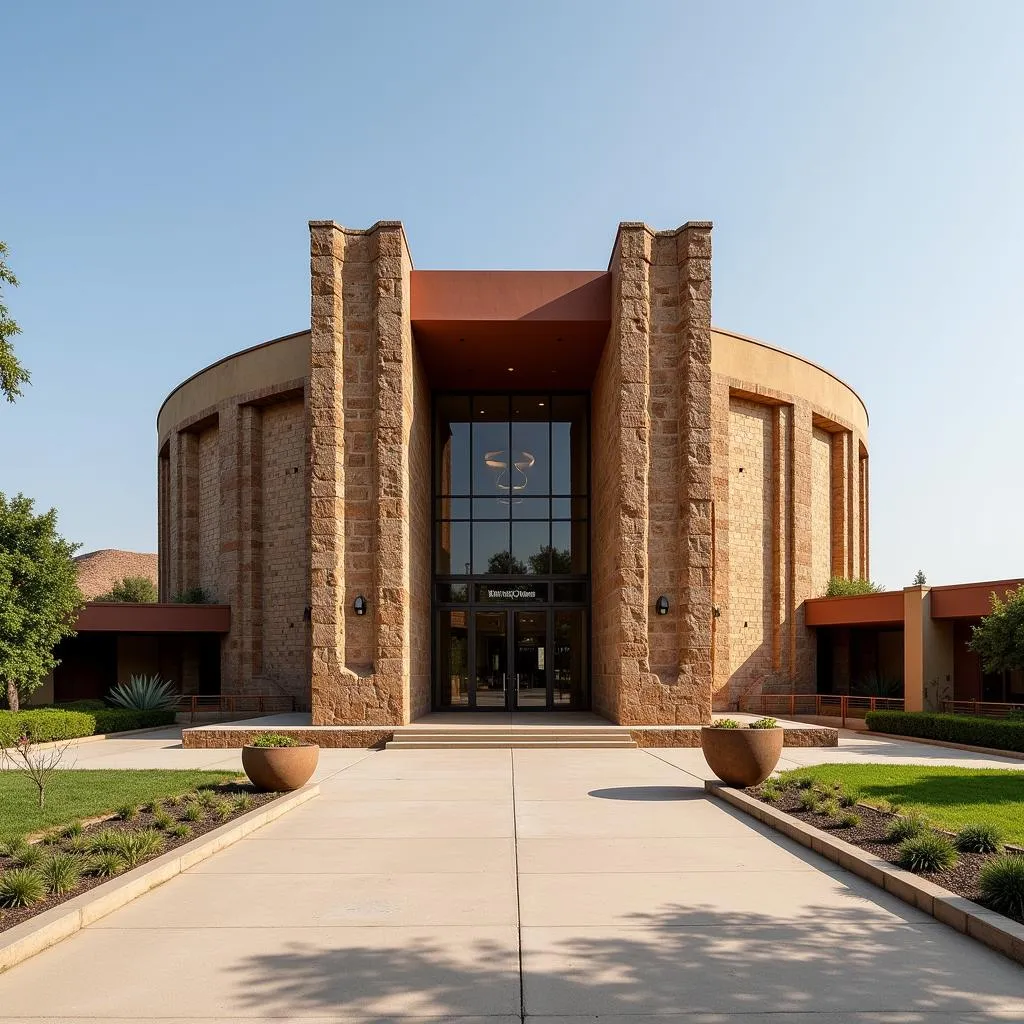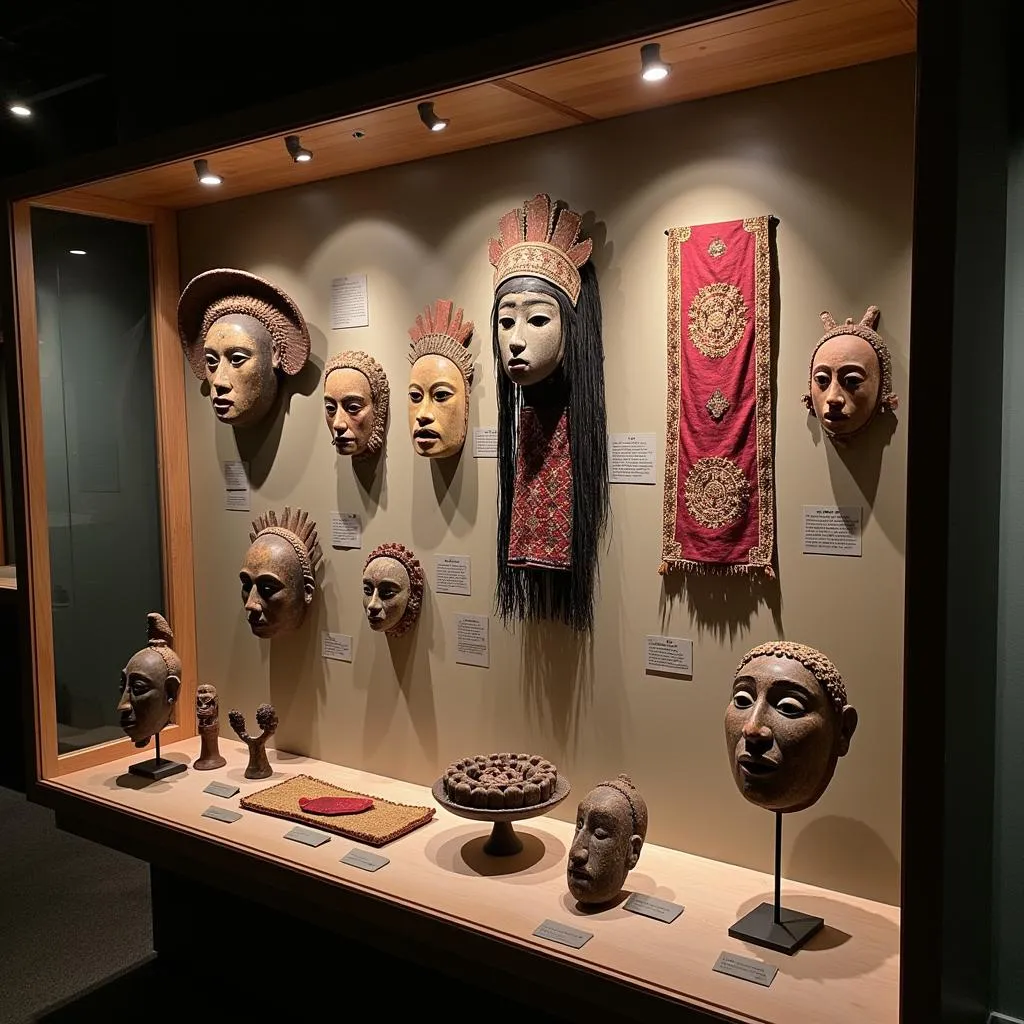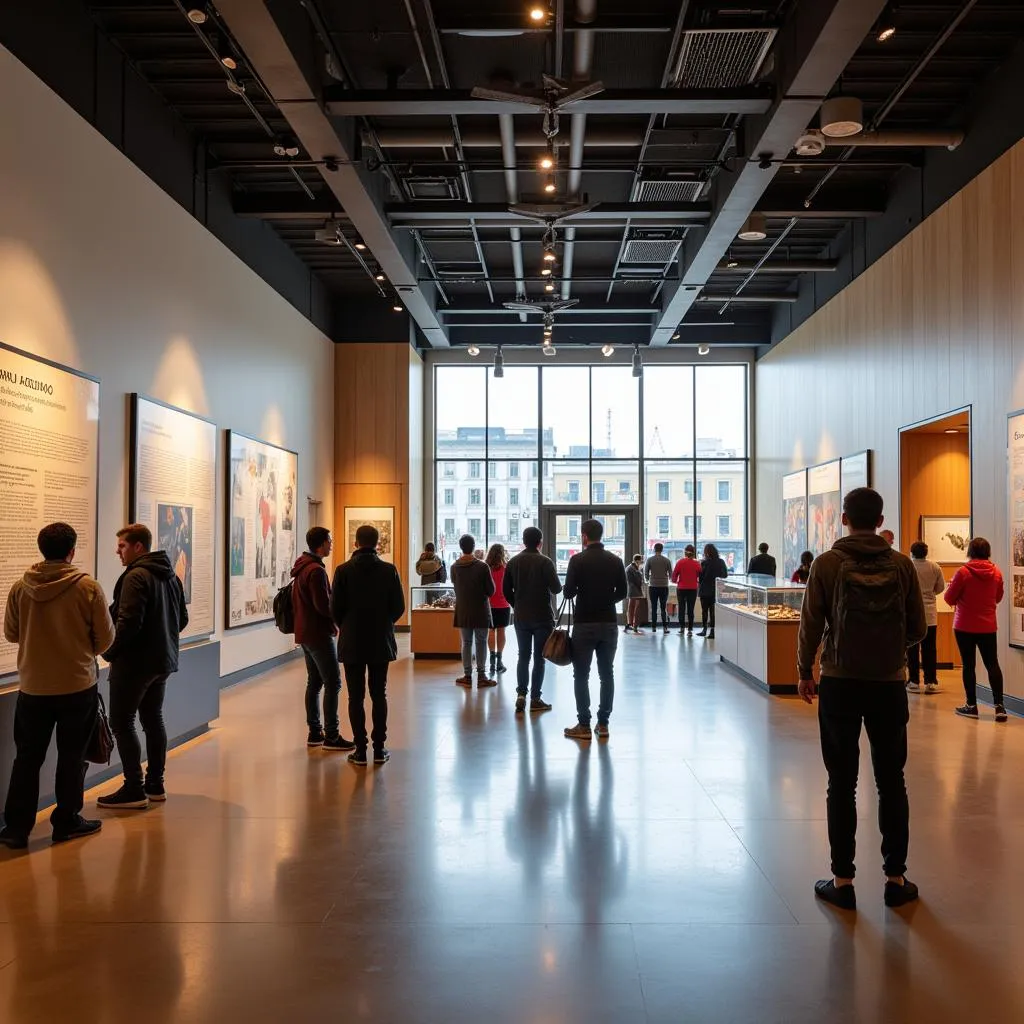Unveiling the Past: A Journey Through African History Museums
African History Museums stand as powerful testaments to the continent’s rich and diverse tapestry of cultures, empires, and triumphs. These institutions serve as vital repositories of knowledge, preserving and showcasing the stories, artifacts, and perspectives that have shaped Africa’s past and continue to influence its present.
 Exterior of a grand African history museum
Exterior of a grand African history museum
Exploring the Significance of African History Museums
More than just static displays, African history museums offer dynamic spaces for engagement and understanding. They challenge preconceived notions, spark dialogue, and foster cross-cultural appreciation. Through interactive exhibits, educational programs, and community outreach, these museums play a pivotal role in:
- Preserving Cultural Heritage: African history museums safeguard invaluable artifacts, oral histories, and traditions, ensuring their transmission to future generations.
- Challenging Historical Narratives: Many museums actively work to decolonize historical narratives, presenting a more accurate and nuanced perspective on Africa’s past, often marginalized or misrepresented in global discourse.
- Promoting Intercultural Dialogue: By showcasing the diversity of African cultures, these institutions encourage cross-cultural understanding and appreciation.
- Inspiring Future Generations: African history museums serve as sources of inspiration, empowering younger generations to connect with their heritage and contribute to the continent’s future.
A Glimpse Inside: What to Expect at an African History Museum
Stepping into an African history museum is an immersive experience. Expect to encounter:
- Ancient Artifacts: From ancient tools and pottery to royal regalia and religious icons, these tangible remnants of the past offer a glimpse into the lives and beliefs of those who came before.
- Art and Sculpture: The artistry of African cultures is on full display through intricate masks, vibrant textiles, and powerful sculptures, each imbued with symbolic meaning and cultural significance.
- Historical Documents and Photographs: Archival materials, including letters, maps, and photographs, provide invaluable insights into key historical events, social structures, and cultural practices.
- Interactive Exhibits: Many museums incorporate multimedia elements, interactive displays, and hands-on activities to enhance the visitor experience and bring history to life.
 Museum exhibit showcasing traditional African artifacts
Museum exhibit showcasing traditional African artifacts
Notable African History Museums Around the Continent
Africa boasts a wealth of exceptional history museums, each offering unique perspectives and collections. Some renowned institutions include:
- The National Museum of Egypt in Cairo: Home to an astounding collection of ancient Egyptian artifacts, including treasures from the tomb of Tutankhamun.
- The Apartheid Museum in Johannesburg, South Africa: This museum offers a poignant and powerful exploration of the history and legacy of apartheid.
- The National Museum of Mali in Bamako: This museum showcases the rich cultural heritage of Mali, with exhibits on archaeology, ethnography, and contemporary art.
- The Museum of Black Civilizations in Dakar, Senegal: This impressive museum celebrates the contributions of black civilizations throughout history, from ancient times to the present day.
 Interior of a modern African American history museum
Interior of a modern African American history museum
Planning Your Visit: Tips for Making the Most of Your Experience
To maximize your visit to an African history museum, consider the following:
- Research Before You Go: Familiarize yourself with the museum’s exhibits, opening hours, and any special events or exhibitions taking place.
- Allow Ample Time: Exploring a museum thoroughly requires time. Plan to spend several hours to fully appreciate the exhibits and information presented.
- Engage with the Exhibits: Don’t hesitate to interact with touchscreens, watch videos, or participate in guided tours to deepen your understanding.
- Reflect and Connect: Take time to reflect on the stories and experiences shared within the museum. Connect the past to the present and consider the ongoing legacy of history.
Conclusion: African History Museums – Windows to the Past, Bridges to the Future
African history museums are far more than repositories of the past. They are dynamic spaces that invite exploration, challenge perspectives, and foster a deeper understanding of the continent’s intricate history and vibrant cultures. By preserving cultural heritage, promoting dialogue, and inspiring future generations, these institutions play a crucial role in shaping a more inclusive and informed future.
